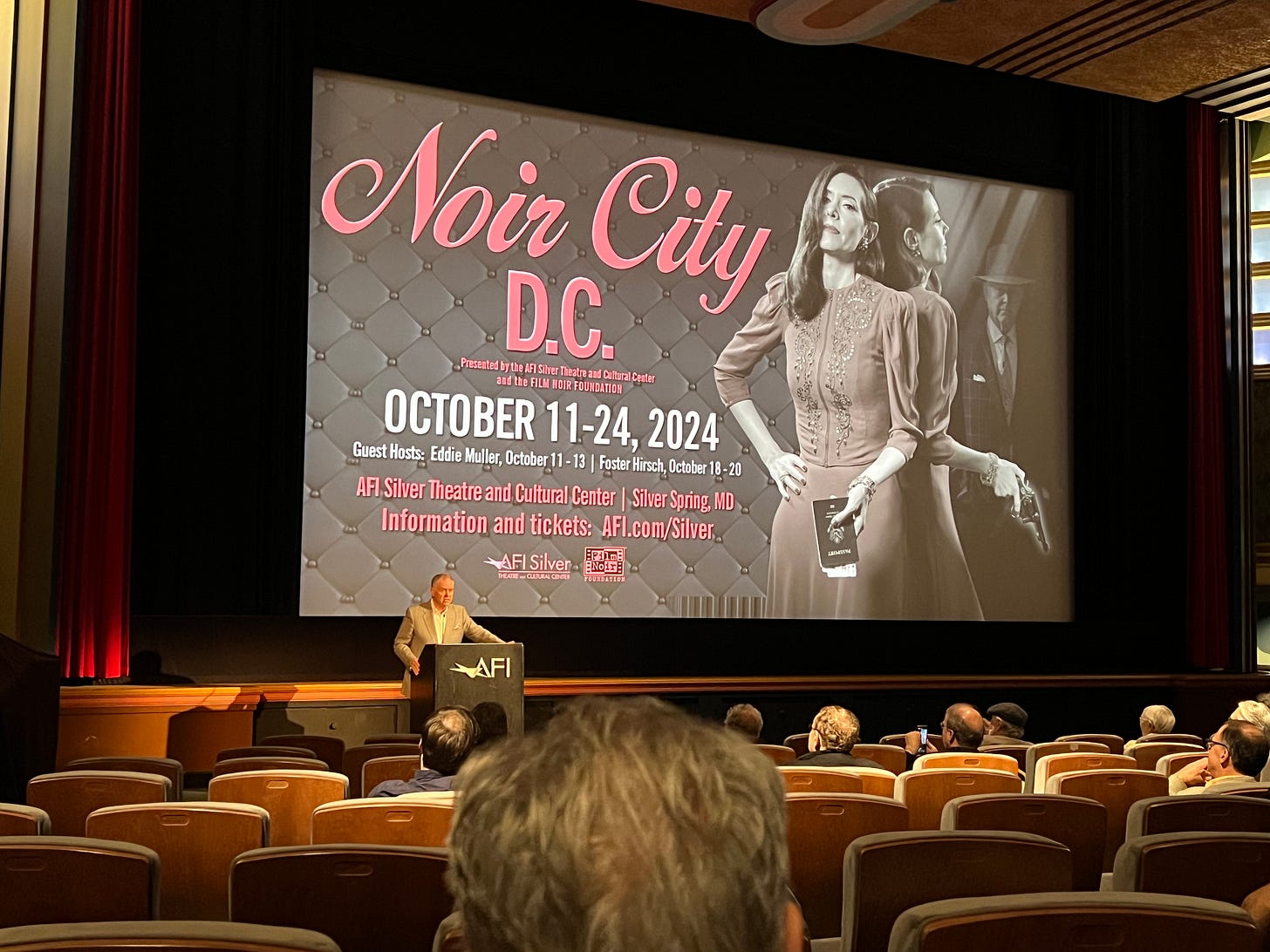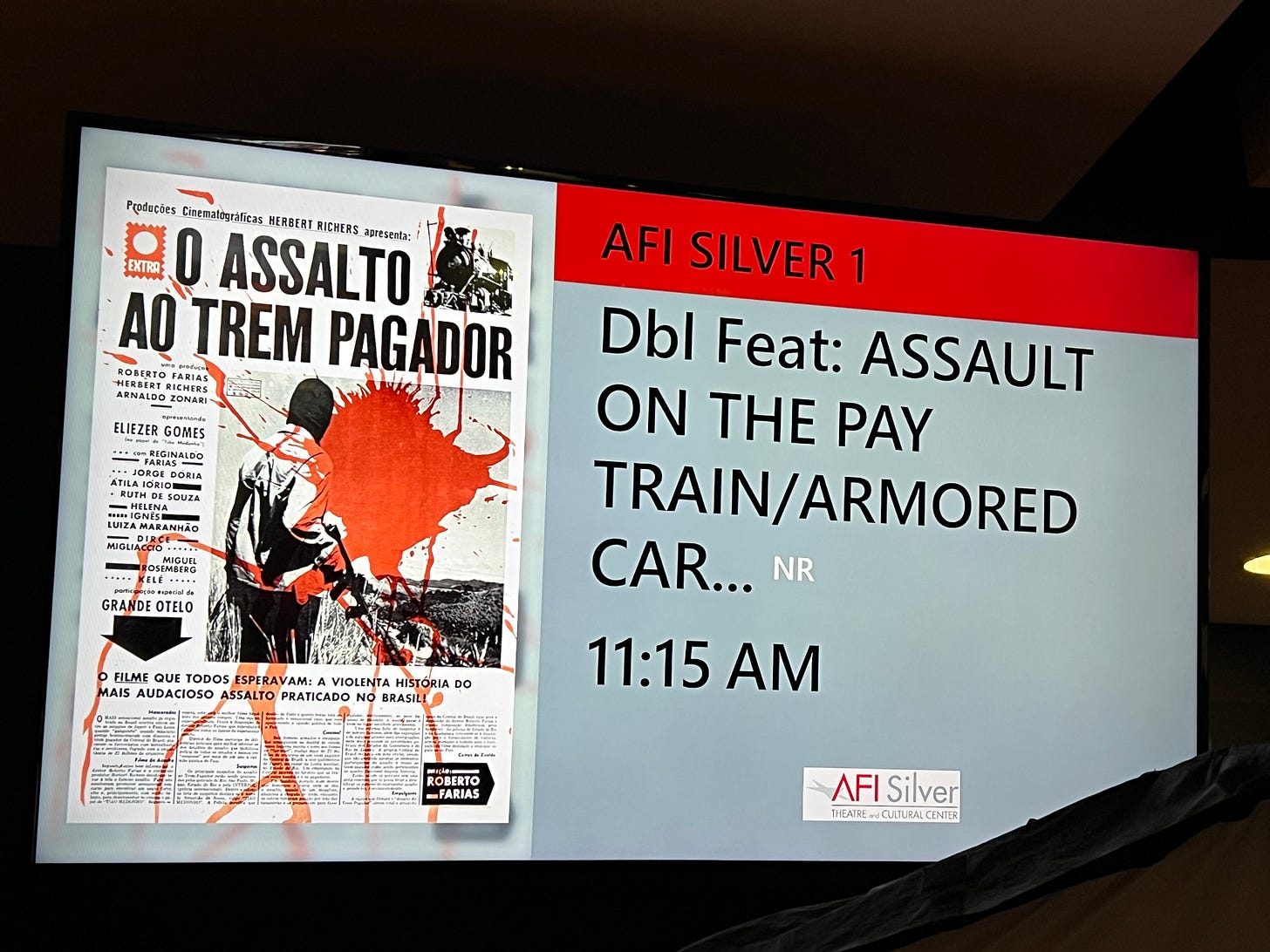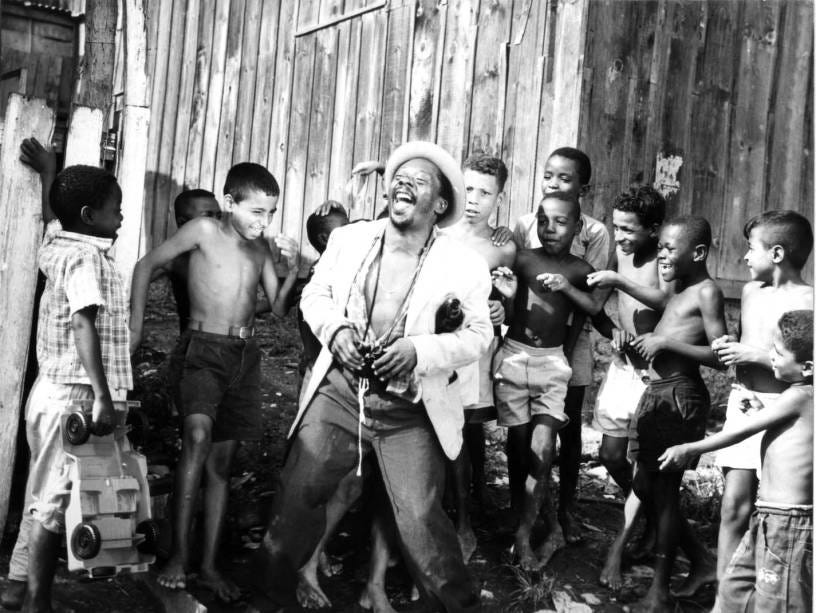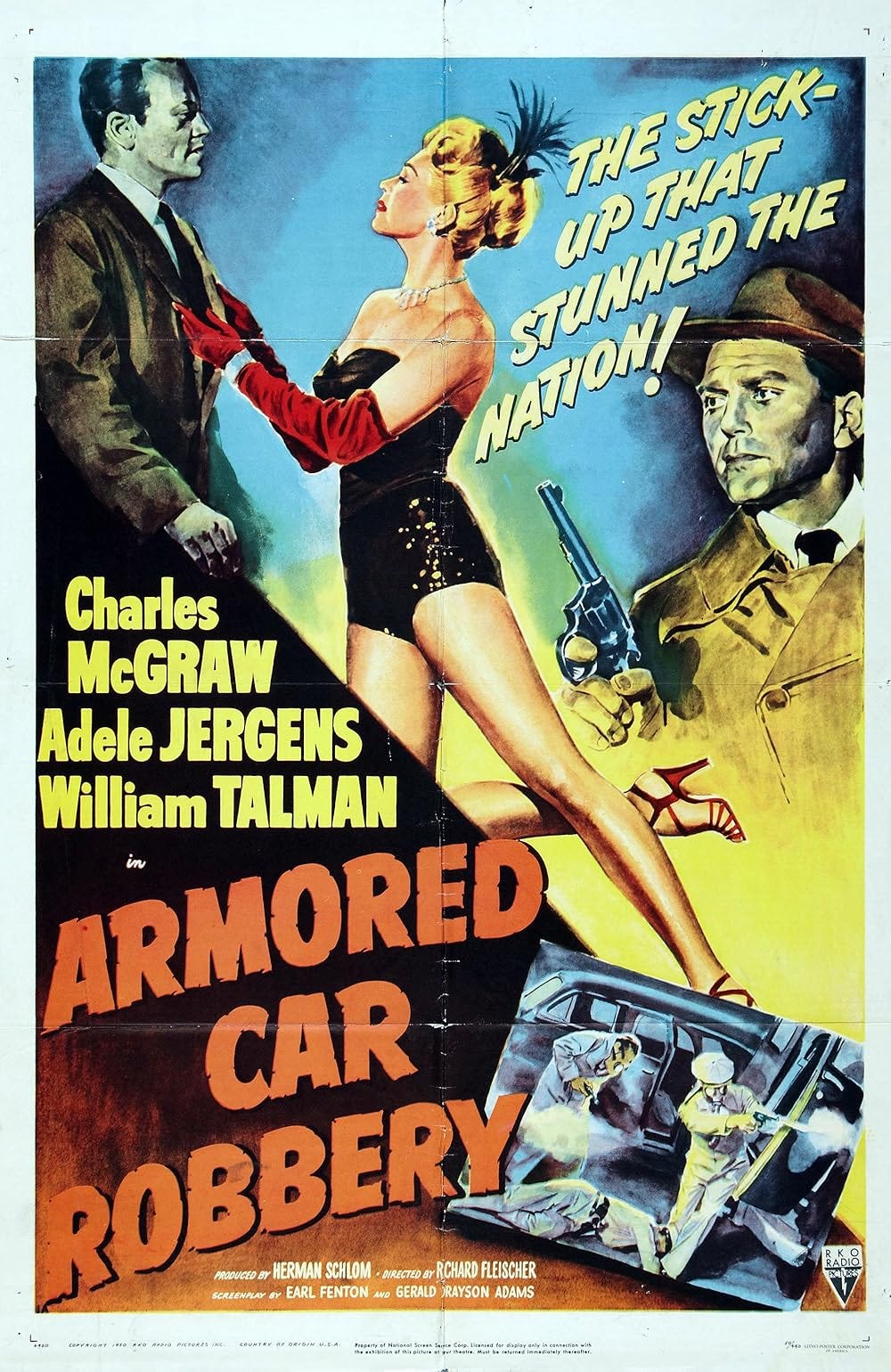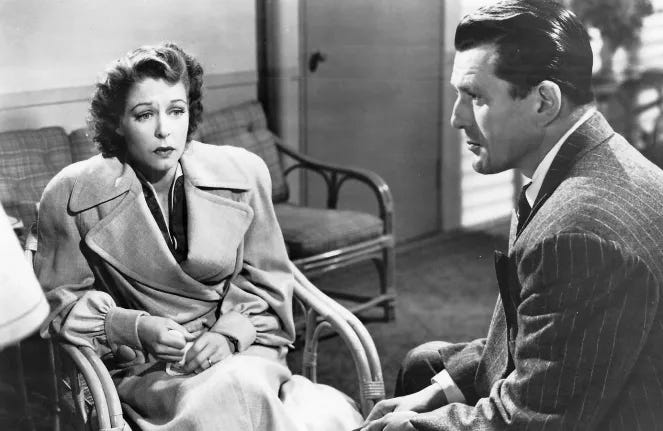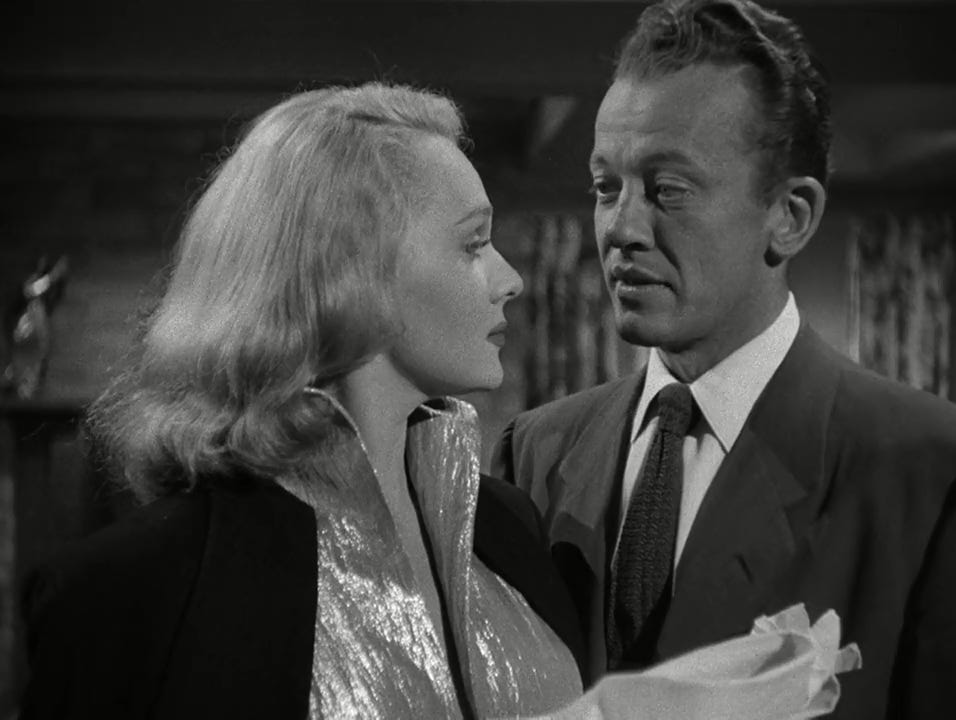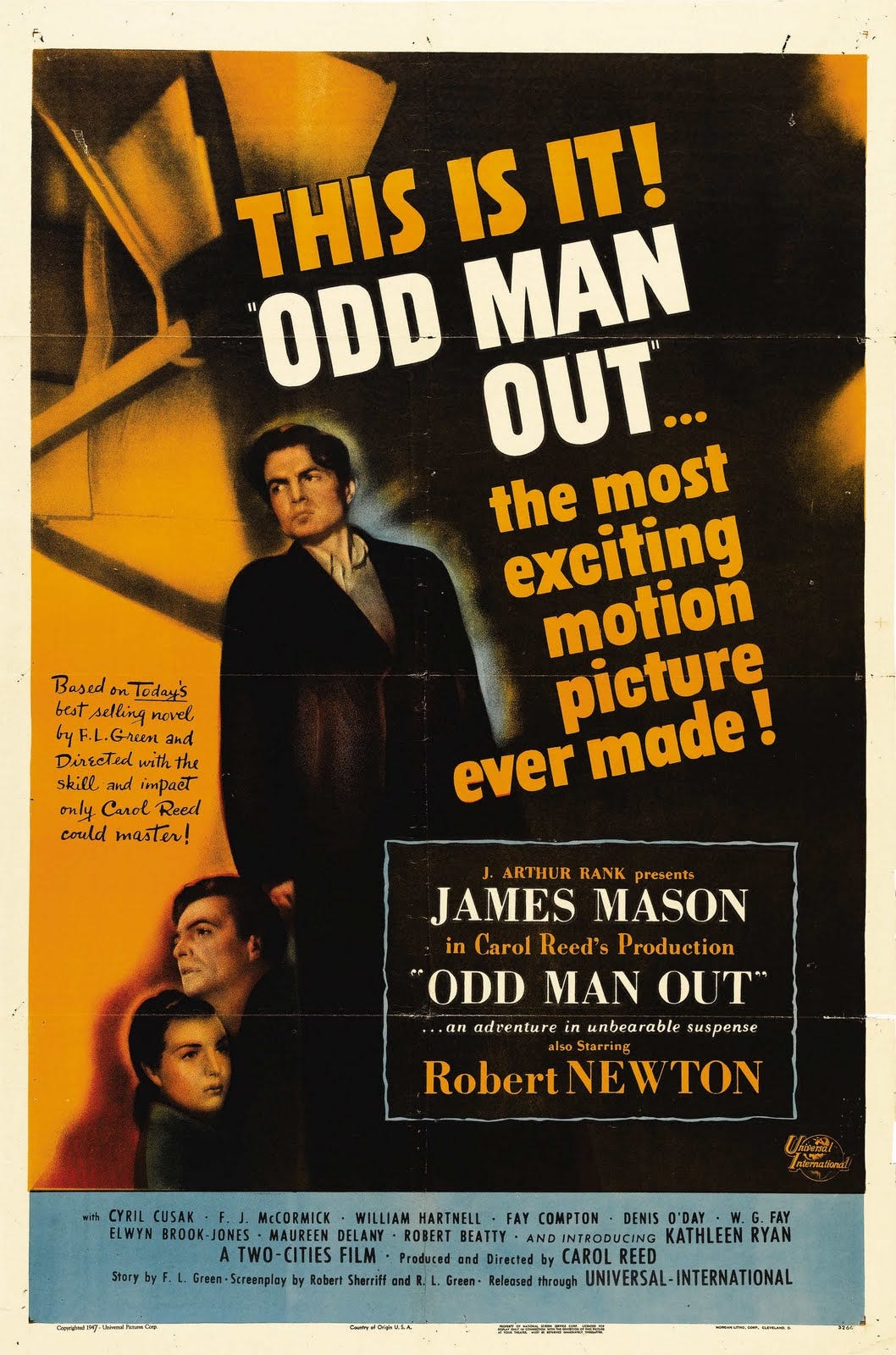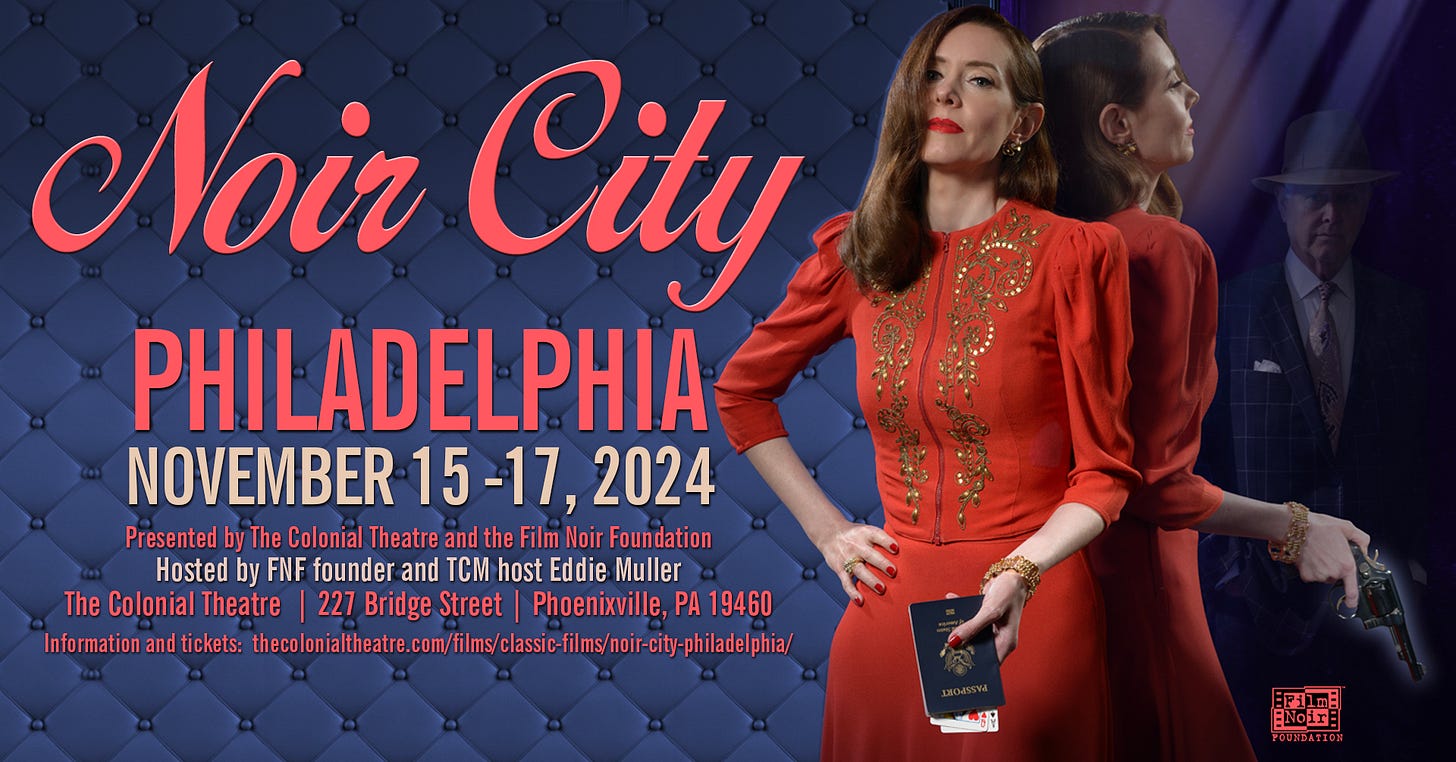Noir City DC Part One
A very late report of my first day at Noir City DC 2024 featuring Eddie Muller
Although I attended only two days of Noir City DC, I saw films with some of the largest crowds I’ve ever witnessed at the festival (although this particular photo does not bear that out). The theme at all the 2024 Noir City festivals is “Darkness Has No Borders,” pairing American and British noirs in double features with their counterparts from other countries. Here’s a quick rundown of what I saw on my first day:
Day One: Introductions by Eddie Muller
Since Eddie Muller was delayed for Friday’s first film, Todd Hitchcock, Director of Programming at the AFI Silver, introduced Assault on the Pay Train (1962), a Brazilian heist film directed by Roberto Farias. The opening scene shows an atypical heist that actually works.
Led by infamous outlaw Tião Medonho (Eliezer Gomes, above), a gang of criminals easily robs a payroll train and then makes good their escape. But then the trouble starts: Tião warns each man not to spend more than 10% of their cut for a year. Otherwise, the locals will get suspicious.
We know Tião’s admonition is doomed to failure, but it doesn’t matter since everyone in their poverty-stricken community already knows about the heist. Each gang member makes unbelievably bad decisions with their money, but none more egregious than Grilo (Reginaldo Faria), who’s ravenously hungry for nice clothes, fast cars, and beautiful women. Something’s got to give, and when it does, Assault on the Pay Train goes places no American film of the time would touch. Farias’s film touches on betrayal, deception, racism, the destructive cycles of poverty, and more. It’s a real eye-opener.
Now in the house, Eddie Muller introduced Armored Car Robbery (1948), an American heist noir directed by Richard Fleischer, as a movie “like a bank robbery comic book.” Unlike Assault on the Pay Train, Armored Car Robbery displays no pretensions of social commentary whatsoever. Fleischer is more interested in delivering a straightforward, ultra-lean 67-minute showcase that’s pure entertainment. After careful study, Dave Purvis (William Talman) orchestrates a scheme to rob an armored car at Wrigley Field (not the one you’re thinking of) during its final pickup of the day. Purvis enlists Benny (Douglas Fowley), Al (Steve Brodie), and Ace (Gene Evans) while police Lieutenant Jim Cordell (Charles McGraw) seeks to stop the heist.
The trio pulls off the job and gets away, but not before killing Cordell’s partner. Cordell, in breaking the news to his partner’s widow, speaks one of the most sympathetic lines possible in hardboiled noir, “Tough break, Marsha.”
Meanwhile, things don’t work out so well for Benny, but Dave is there to comfort Benny’s girl Yvonne (Adele Jergens), who Dave has been seeing on the sly.
It had been 10 years since I’d last seen Armored Car Robbery, which left me wondering why I don’t revisit it more often. How many times do you find yourself wondering what you can do with 67 minutes?
I love Hugo Fregonese’s Black Tuesday (1954), which is enjoying two restored releases on physical media in 2024 from Kino Lorber and Eureka/Masters of Cinema, but the director’s last film made in his native Argentina before coming to America is Hardly a Criminal (1949), a terrific prison picture.
José (Jorge Salcedo, left) makes a habit of embezzling money from his workplace because he thinks he deserves it. Selfish and impatient, he keeps taking money and using it to place bets, and we all know how well that’s going to work. But when a friend finds a legal loophole that states no matter how much he steals, six years is the maximum time he’ll have to serve. So why steal $1,000 when you can steal half a million and have it waiting for you when you get out in only six years?
But José’s forgetting he’s in a film noir. Like many prison pictures, Hardly a Criminal contains a good supporting cast, a dark script, creative camerawork, and nice location shooting.
Eddie Muller asks of Plunder Road (1957): “Is it noir? Well, Elisha Cook Jr. is in it!” That’s reason enough for me. The strength of Plunder Road is its first 15 minutes, a tension-filled cascade of amazing shots of five guys pulling off a train heist of $10 million in gold during a pounding rain storm.
These five guys (Gene Raymond, Steven Ritch, Stafford Repp, Wayne Morris, and Elisha Cook Jr.) look like they’ve been doing this all their lives. Although Plunder Road is a low-budget film, it boasts master cinematographer Ernest Haller, who worked on such movies as Mildred Pierce, Rebel Without a Cause, and a little film you may have heard of called Gone With the Wind. How Cornfield got him, I have no idea, but Haller does a nice job with very little. The ending is priceless.
You can make a good case for director Carol Reed having the greatest three-film run of all time. In reverse order, The Third Man (1949), The Fallen Idol (1948), and Odd Man Out (1947). Here’s a review from several years ago if you’d like to read more.
Although none of the films I’ve covered here (except Black Tuesday) will be part of the program, you should definitely check out Noir City Philadelphia November 15-17 at the Colonial Theatre in Phoenixville, PA.
Stay tuned; I’ll have more soon!


